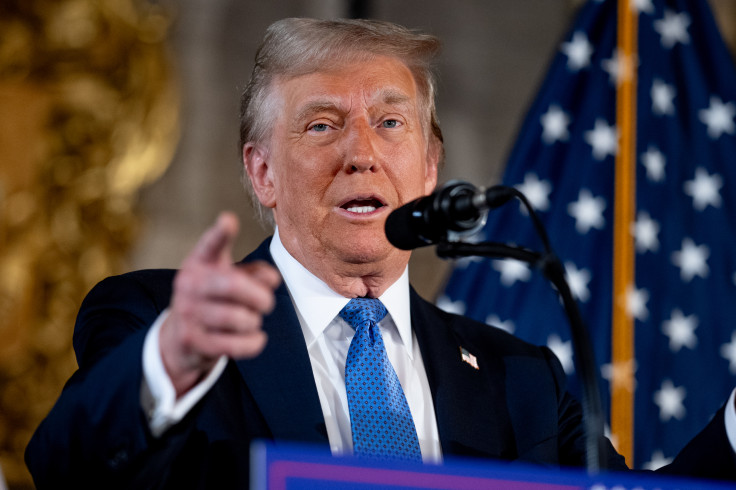
Tensions between the U.S. and Mexico are rising as President-elect Donald Trump continues to reportedly consider the possibility of U.S. military action on Mexican soil to address cartel activity.
Trump has long hinted at attacking Mexico throughout the years. In fact, he even considered ordering missile strikes on drug labs in Mexico during his first term but was talked out of it by former Defense Secretary Mark Esper, according to Esper's 2022 memoir.
Now, as fentanyl— a popular drug often fabricated in Mexico and brought up the border— becomes the deadliest drug in the U.S., with about 76,000 fatalities in 2023, Trump and his allies are floating the use of American military force against Mexico's drug cartels once again, according to The Wall Street Journal. He is seemingly already taking steps to make this happen.
Throughout his campaign, Trump said he would take military action against cartels, impose a naval embargo to prevent drugs from crossing the border and designate cartels and their leaders as foreign terrorists. Separately, the Republican president-elect has threatened 25% tariffs on goods from Mexico if the country doesn't stop the flow of migrants and fentanyl. The Republican Party platform also includes use of the military at the border.
At the same time, Trump has welcomed into his camp some personalities who have worked or supported military action against cartels, including his choice for national security adviser, Rep. Mike Waltz (R-Fla.) and potential defense secretary Pete Hegseth. Trump has also signaled that security would be the prime focus of the two countries' relationship, nominating Ron Johnson, a former Green Beret and U.S. intelligence officer with wide experience in Latin America, as U.S. ambassador to Mexico.
"Unlike the sitting president, Joe Biden, President-elect Trump believes his utmost priority is the safety and security of American citizens, and he will, in fact, take the necessary actions to uphold this responsibility," said Trump spokeswoman Karoline Leavitt.
In response to these actions, Mexican President Claudia Sheinbaum has not been shy make shows of force, downplaying chances of such actions in Mexico and letting the neighboring country know her administration is not soft on drugs and immigration.
"There won't be an invasion," Sheinbaum said at a recent news conference. "It's not going to happen."
Sheinbaum's administration has gone after fentanyl smugglers in Mexico's powerful Sinaloa cartel, seizing 1.3 tons of the drug. She has also sent her security minister to Sinaloa to oversee the efforts to take back control of a state where organized crime dominates the political establishment and two factions are in a turf war, The Wall Street Journal reports.
Mexico is also in talks to set up a unit of elite security officers who would be vetted and trained by U.S. law-enforcement officials for operations against criminals in Mexico, according to Mexican officials.
A U.S. military move in Mexico would shut down all cooperation between the U.S. and Mexican law-enforcement and military branches, according to the Journal. Any U.S. soldiers or agents involved in the killing or capture of a narcotics boss within Mexico could face murder or kidnapping charges in Mexico.
That would be a stark contrast to how the two countries have gone about their relations in recent years. For the most part, Mexico and the U.S. have maintained a collaborative relationship throughout this year, as Mexico stepped up its security and immigration efforts to stop migrants from going up north and crossing the border, a move experts and government officials credit as one of the main contributors to a steady decline in unauthorized migration to the U.S. in 2024.
Analysts also say that military action would do little or nothing to stop the flow of fentanyl into the U.S., if the U.S. does little to curb the demand of a drug that is not only cheap to produce, but also easy to smuggle and yields profits.
© 2024 Latin Times. All rights reserved. Do not reproduce without permission.








